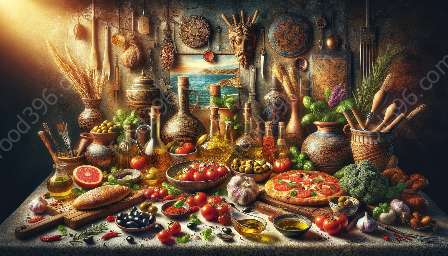North African cuisine is a rich and varied culinary tradition that has been shaped by a diverse history and a wide range of influences. From the ancient Berber tribes to the Roman Empire, Islamic conquests, and European colonization, the region's food culture reflects a tapestry of flavors and techniques.
The Ancient Roots
The history of North African cuisine dates back to the ancient Berber tribes who inhabited the region. These early people relied on a diet of locally sourced ingredients such as grains, dates, olives, and various fruits and vegetables. The use of spices and herbs was also prevalent, as these resources were abundant in the region. Over time, the Berber culinary traditions evolved, influenced by interactions with neighboring Mediterranean and Middle Eastern cultures.
Mediterranean Influence
North African cuisine has been heavily influenced by the wider Mediterranean culinary tradition. The trade and exchange of goods, ideas, and culinary techniques between North Africa and various Mediterranean civilizations, such as the Greeks and the Romans, have shaped the region's food culture. Ingredients like olive oil, wheat, and wine were introduced to North Africa through these interactions and became integral components of the local cuisine.
Islamic Era
The spread of Islam across North Africa during the 7th century brought significant changes to the region's culinary landscape. Islamic dietary guidelines, as well as the introduction of new ingredients such as rice, citrus fruits, and various spices, profoundly impacted the development of North African cuisine. The fusion of Arab, Berber, and Mediterranean culinary traditions created a diverse and vibrant food culture that continues to be celebrated today.
Colonial Influence
European colonial powers, including the French, Spanish, and Italians, also left their mark on North African cuisine. The exchange of culinary practices and ingredients between North Africa and Europe contributed to the evolution of traditional dishes and the incorporation of new flavors and cooking techniques. This cultural interchange resulted in the creation of unique fusion dishes that combine elements of both North African and Mediterranean cuisines.
Key Ingredients and Techniques
North African cuisine is characterized by its use of bold and aromatic spices, such as cumin, coriander, cinnamon, and saffron. These spices are combined with ingredients like couscous, lamb, poultry, and a variety of vegetables to create an array of flavorful and fragrant dishes. Olive oil, preserved lemons, and harissa, a spicy chili paste, are essential components of many North African recipes.
Signature Dishes
Some of the most iconic dishes in North African cuisine include couscous, a versatile staple made from steamed semolina, and tagines, slow-cooked stews that blend savory meats, vegetables, and spices. Harira, a traditional soup often enjoyed during Ramadan, and pastilla, a savory pie filled with spiced meat and nuts, are also beloved specialties of the region.
Modern Influence and Global Recognition
North African cuisine has gained international acclaim in recent years, with the growing popularity of restaurants and chefs showcasing the region's culinary delights. The fusion of traditional North African flavors with contemporary cooking styles has captivated global audiences, leading to a greater appreciation for the diverse and tantalizing dishes that define the region's gastronomy.
In Conclusion
The history of North African cuisine is a captivating journey that reflects the region's rich heritage and complex cultural tapestry. From its ancient Berber origins to its interactions with Mediterranean, Middle Eastern, and European influences, North African cuisine continues to be celebrated for its vibrant flavors, aromatic spices, and diverse range of dishes. As an integral part of the broader Mediterranean culinary tradition, North African cuisine exemplifies the interconnectedness of food cultures and the enduring legacy of centuries-old culinary traditions.

